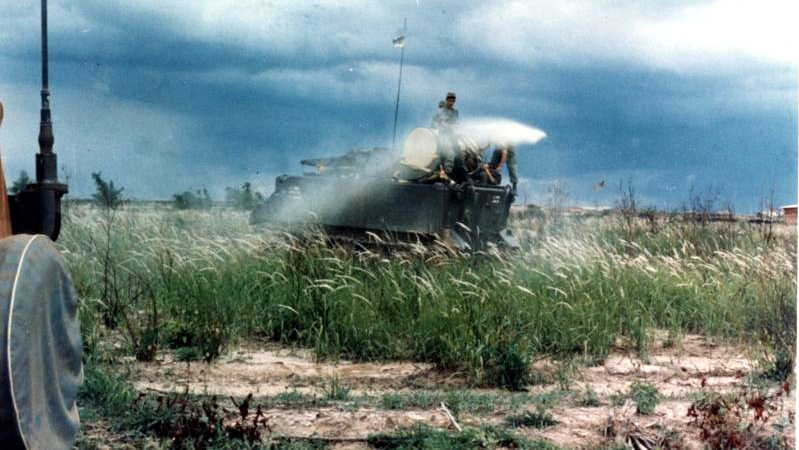
Correction: The original report identified the United Kingdom as being an active participant in land fighting during the Vietnam War. This was proven to be incorrect and the article was corrected duly.
During the Vietnam War, the U.S. sprayed more than 20-million gallons of the herbicide Agent Orange over eastern Laos, Cambodia and communist-held Vietnam. Intended to remove the forest cover that sheltered the Vietcong guerrillas and to make food growth impossible across the countryside, the policy led to widespread famine, death and long-term health problems for Southeast Asians.
Contamination of the 2,4,5-Trichlorophenoxyacetic acid — which serves as the active chemical in Agent Orange — with 2,3,7,8-tetrachlorodibenzodioxin, a highly toxic dioxin derivative, led to soil and water contaminations hundreds of times greater than the U.S. Environmental Protection Agency’s standards. This, in turn, led to an estimated 400,000 people being maimed or killed, and an additional 500,000 children being born with birth defects, per Vietnamese estimates.
Of the three-million Americans that served in the military during the Vietnam War, a large number came in contact with Agent Orange. Veterans returning from the war started to report psychological symptoms, birth defects in their offspring, skin rashes, cancer and a wide swathe of other health problems.
Eventually, the federal government recognized Agent Orange exposure as a compensatable war injury entitling affected veterans to health care and fiscal compensations. And a class-action lawsuit against Agent Orange’s manufacturers — Monsanto and Dow Chemical — resulted in a nearly $200 million Agent Orange Settlement Fund.
Despite this, in 2002, the Department of Veteran Affairs changed its rules about the presumption of Agent Orange exposure. The Agent Orange Act of 1991 created a “presumption of service connection” for illnesses related to Agent Orange, meaning that veterans who served in “active military, naval, or air service … in the Republic of Vietnam during the Vietnam era” who develop specific diseases can qualify for disability and VA health care.
The “presumptive diseases” in which the VA automatically assumes were caused by Agent Orange exposure for Vietnam-serving veterans included 14 diseases, along with prostate cancer and Type 2 diabetes.
In 2002, sailors who served aboard naval ships in the territorial waters of Vietnam — so-called “Blue Water Navy veterans” — were denied automatic assumption, due to the fact that their service areas were not in areas sprayed with Agent Orange. The VA ruled that only Blue Water Navy veterans that went ashore or travelled inland waterways and can prove it — can claim an Agent Orange-related illness.
“[The] fact remains that Agent Orange was sprayed over land and not over open coastal waters and that duty or visitation within the country of Vietnam, or on its inland waterways, is required by VA regulations to receive the presumption of exposure,” said Meagan Lutz, a spokeswoman for the VA.
For the surviving 100,000 Blue Water Navy veterans, however, this denial of presumption is a slight against them by the VA. On Aug. 2, 2013, the Blue Water Navy Vietnam Veterans Association and Military Veterans Advocacy, Inc. jointly filed suit in the United States District Court for the District of Columbia against Eric K. Shinseki in his capacity as Secretary of the Department of Veterans Affairs for the immediate restoration of Agent Orange presumptions of exposure.
Additionally, HR 543, The Blue Water Navy Vietnam Veterans Act of 2013, has been introduced in the House to restore the Agent Orange presumption. Advocates for the restoration of the presumptions argue that the naval ships used distilled water filtered from runoff water from the coast and that the food the sailors ate on-board was, in part, grown in Vietnam.
“I’m not greedy,” said Greg Fuller, a Blue Water Navy veteran that was denied presumption when he was diagnosed with prostate cancer in 2005. “It wouldn’t bother me if I never got it … but I might deserve it. If it’s true that we drank water that was processed that had Agent Orange in it, it’s only fair that (we) get it.”

